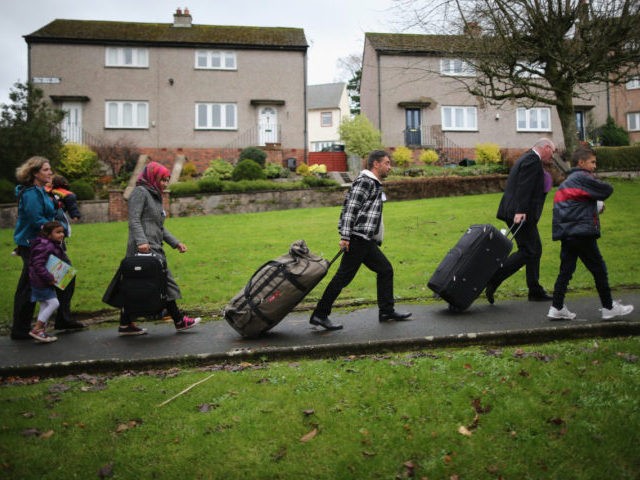Refugees who want to stay in the UK permanently after their five-year probation period is up will need to pass a “safe return review” before being granted leave to stay, under new guidelines issued by the Home Office.
An update to the Home Office’s policy on Refugee Leave, uploaded to the department’s website on 9 March, makes it clear that immigration officials must assess whether it has become safe for a refugee to return to their home country before granting an applicant the right to stay on in the UK permanently.
The new guidance states that refugees applying for settlement protection at the end of their probation period “will be subject to a safe return review with reference to the country situation at the date the application is considered.” It adds: “Those who still need protection at that point will normally qualify for settlement.”
Refugee status may also be reviewed before a person’s probation period is up in cases in which, for example, “they are convicted of a serious crime, or in light of a significant and non-temporary change in conditions in their country of origin such that they no longer need protection”.
The guidance clarifies: “Refugee leave may be revoked where someone no longer needs, is no longer entitled to protection due to their actions, or should not have been given protection under the Refugee Convention.”
Where migrants do not apply for settlement before their probation leave expires, the guidance states they will be considered over-stayers and their right to claim benefits will be lost.
The move has been panned by refugee rights groups. Dr. Lisa Doyle of the Refugee Council told The Guardian the changes will leave refugees with the “constant fear of return hanging over their heads”, adding the policy “completely misunderstands the fact that many refugees desperately want to return home of their own accord anyway”.
But the government has defended the changes, which fulfil a pledge made by Prime Minister Theresa May when she was still home secretary.
Addressing the Conservative Party conference in October 2015, May outlined how she intended to tackle the flaws in the current asylum system, which she said favoured “the wealthiest, the luckiest and the strongest” and was open to widespread abuse by economic migrants.
“We’ll introduce strengthened ‘safe return reviews’ – so when a refugee’s temporary stay of protection in the UK comes to an end, or if there is a clear improvement in the conditions of their own country, we will review their need for protection,” she told the party faithful.
“If their reason for asylum no longer stands and it is now safe for them to return, we will seek to return them to their home country rather than offer settlement here in Britain.
“For the first time, we’ll distinguish between vulnerable people resettled from their region and those who claim asylum after abusing the visa system or having travelled to get here through safe countries.”
Commenting on the policy update, a Home Office spokesman said: “There has been no change in our policy. Since 2010, we have granted settlement to more than 100,000 refugees. However, we have never operated a policy of automatic settlement.
“We consider every application for settlement on its individual merits and we’re clear that protection will be granted for as long as it is needed. The UK has a long and proud history of granting protection to those who need it and that is not going to change.”

COMMENTS
Please let us know if you're having issues with commenting.